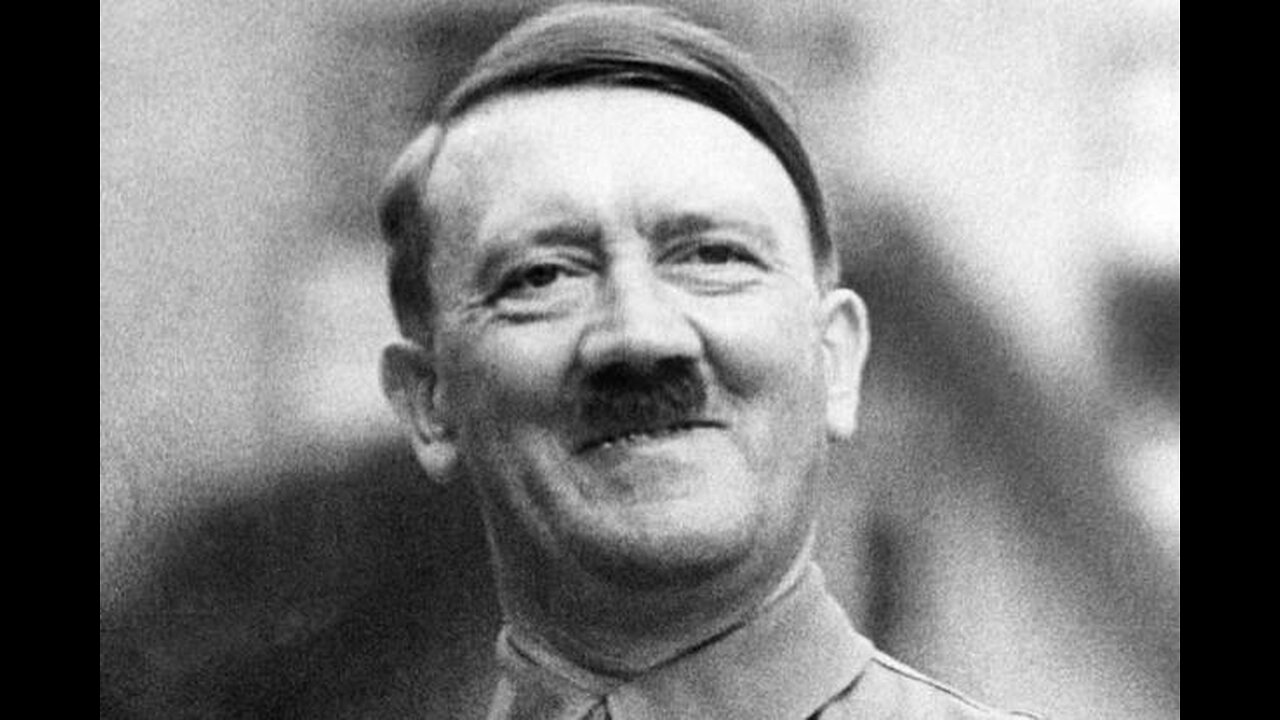Premium Only Content

Hitler's Address to the Industry Club in Düsseldorf – January 27, 1932
Background Leading Up to Hitler's Address to the Industry Club in Düsseldorf
Economic Depression: By January 1932, Germany was deeply affected by the Great Depression. Unemployment was high, businesses were struggling, and the economy was in severe distress.
Political Instability: The Weimar Republic faced ongoing political instability with frequent changes in government and rising support for extremist parties. The Nazis and Communists were gaining traction as the public became increasingly disillusioned with traditional parties.
Nazi Party's Growing Influence: The Nazi Party, under Hitler's leadership, had become a significant political force, appealing to various segments of the population with promises of economic recovery, national revival, and strong leadership.
Targeting Industrialists: Hitler aimed to gain the support of Germany’s industrial and business elite, who were crucial for financial backing and legitimacy. The speech to the Industry Club in Düsseldorf was a strategic effort to win over these influential figures.
Hitler's Address to the Industry Club in Düsseldorf – January 27, 1932
On January 27, 1932, Adolf Hitler addressed the Industry Club in Düsseldorf, presenting his vision for Germany's future and seeking to gain the support of the country's industrial and business leaders.
Key Points of Hitler's Address:
Critique of the Weimar Republic: Hitler began by sharply criticizing the Weimar Republic for its economic and political failures. He argued that the current government was incapable of addressing Germany’s crises and blamed its policies for the economic depression and social unrest.
Economic Vision: Hitler presented a detailed economic vision aimed at restoring Germany’s prosperity. He emphasized the need for state intervention to revive industry, reduce unemployment, and stabilize the economy. He promised that the Nazi Party would create a favorable environment for business growth and economic stability.
Anti-Marxist Stance: A significant part of the speech was devoted to denouncing Marxism and communism. Hitler portrayed these ideologies as threats to Germany’s economic health and social order. He assured the industrialists that the Nazi Party would protect private property and free enterprise from communist influence.
Nationalism and Unity: Hitler emphasized the need for national unity and a strong, centralized government. He argued that only a unified nation under decisive leadership could overcome the economic and social challenges facing Germany.
Rearmament and National Defense: He spoke about the importance of rearming Germany to restore its military strength and national pride. Hitler argued that a strong military would protect Germany’s interests and provide security for its economic ventures.
Promise of Order and Stability: Hitler assured the industrialists that a Nazi government would restore order and stability. He promised to eliminate political violence, reduce strikes, and ensure a stable environment for business operations.
Appeal to Industrialists: Concluding his address, Hitler made a direct appeal to the industrialists, asking for their support. He positioned the Nazi Party as the only viable solution to Germany’s problems and sought their backing to bring about the national revival he envisioned.
Analysis:
Hitler’s address to the Industry Club in Düsseldorf was a calculated effort to win the support of Germany’s business elite. By presenting a comprehensive economic plan and emphasizing themes of stability, order, and anti-communism, Hitler aimed to align the interests of the industrialists with the goals of the Nazi Party.
Economic Promises: The detailed economic vision was designed to reassure the industrialists that the Nazi Party had a practical plan for economic recovery. By promising state intervention and a favorable business environment, Hitler sought to gain their trust and support.
Anti-Marxist Rhetoric: The strong anti-Marxist stance was intended to appeal to the industrialists’ fears of communism. By positioning the Nazi Party as a bulwark against Marxism, Hitler aimed to attract those who were concerned about the threat of social and economic upheaval.
Nationalism and Military Strength: The emphasis on nationalism and military rearmament was meant to evoke a sense of pride and security. Hitler argued that a strong military was essential for protecting economic interests and ensuring national sovereignty.
Promise of Stability: The promise to restore order and reduce political violence was aimed at addressing the industrialists’ concerns about stability. By pledging to create a stable environment for business, Hitler sought to present the Nazi Party as a reliable partner for economic recovery.
Direct Appeal for Support: The direct appeal to the industrialists underscored the importance of their backing for the Nazi Party’s success. Hitler sought to persuade them that their support was crucial for achieving the national revival he envisioned.
Overall, Hitler’s address to the Industry Club in Düsseldorf on January 27, 1932, was a strategic effort to gain the support of Germany’s business elite. By addressing their concerns, presenting a clear economic vision, and emphasizing themes of stability and anti-communism, Hitler aimed to align their interests with those of the Nazi Party. This speech was a key moment in his efforts to build a broad base of support and to position himself as the leader capable of guiding Germany through its crises.
-
 1:13:11
1:13:11
Man in America
9 hours agoDr. Ealy: How Ancient Bloodlines Turned Medicine into a WEAPON Against Humanity
27.6K28 -
 LIVE
LIVE
SpartakusLIVE
4 hours agoLAST DAY of BATTLEFIELD 6 || WZ - BF6 - PUBG
1,214 watching -
 5:28
5:28
Zach Humphries
1 day agoMAJOR STELLAR XLM PARTNERSHIP ANNOUNCED!
332 -
 4:51:51
4:51:51
MattMorseTV
5 hours ago $0.83 earned🔴Gaming Sunday🔴
45.1K9 -
 24:24
24:24
Jasmin Laine
7 hours ago“Their BIGGEST Mistake Yet”—U.S. Officials TORCH Carney in Brutal Report
29K26 -
 LIVE
LIVE
Rallied
4 hours ago $0.12 earnedWARZONE SOLO CHALLENGES ALL DAY
459 watching -
 2:00:33
2:00:33
Joker Effect
3 hours agoSoo @MrBeast charity, is it legit? XenaTheWitch got attested? Lets talk about it! HOW TO GO VIRAL.
18.8K1 -
 27:01
27:01
TheRoyaltyAutoService
10 hours ago $0.06 earnedAnother Shop Replaced The Timing Belt & Fuel Injectors On This Honda Pilot… Now It Has No Power!
31.9K3 -
 10:14:25
10:14:25
GritsGG
12 hours agoRanked Crim 2! Most Wins 3390+ 🧠
62.7K -
 3:12:37
3:12:37
IsaiahLCarter
1 day ago $1.69 earnedJonah O. Wheeler: In Defense of Reality || APOSTATE RADIO #026
31.4K1